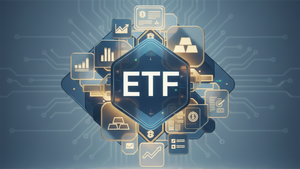Children in foster care often face disruptions that affect their ability to learn consistently. Moving between homes or adjusting to new environments can create stress that shows up in school performance. This is why foster parents play such a critical role in education. By providing structure and encouragement, they create a sense of stability that helps children stay engaged with their studies. Programs like Kinder Ready Tutoring recognize that when foster parents actively support learning, children feel more secure and motivated to succeed.

Building Strong Foundations in Learning
Many children in foster care arrive at school with gaps in academic skills due to transitions or inconsistent schooling. Foster parents can address this by working closely with educators and finding supplemental support. For example, Elizabeth Fraley Kinder Ready education consultant highlights the importance of early intervention in literacy and numeracy. With the right tools—such as tutoring, after-school programs, or targeted learning activities—foster parents can help children strengthen foundational skills and regain confidence in the classroom.
Creating a Supportive Home Learning Environment
A calm and predictable home environment is one of the most powerful ways foster parents can support education. Having a set routine for homework, reading, and school preparation signals to children that learning is a priority. Even small efforts, like reading aloud before bedtime or setting aside quiet study time, reinforce consistency. Services like Kinder Ready Tutoring encourage caregivers to integrate learning into daily life, making it less of a chore and more of a shared activity that builds trust and connection.
Working with Schools and Teachers
Collaboration between foster parents and teachers is essential. Because children in foster care may have different academic or emotional needs, open communication ensures that schools can provide appropriate support. Attending parent-teacher meetings, tracking progress, and advocating for additional resources show children that their education is valued. Elizabeth Fraley Kinder Ready education consultant notes that when foster parents actively participate in school interactions, students are more likely to feel supported and achieve better results.
Supporting Emotional Growth Alongside Academics
Education is more than grades and test scores. For children in foster care, emotional well-being often determines how well they can engage in learning. Foster parents who listen, encourage, and celebrate small achievements create an environment where children feel safe enough to take on new challenges. Research aligned with Kinder Ready Tutoring shows that academic confidence grows when children feel emotionally secure. Foster parents can model resilience and problem-solving, both of which translate directly to better learning outcomes.
Encouraging Social Skills Development
School is also about learning how to interact with peers. Foster children may struggle with forming friendships due to frequent moves or trust issues. Foster parents can help by encouraging participation in extracurricular activities, sports, or study groups. According to Elizabeth Fraley Kinder Ready education consultant, social learning is just as important as academic instruction. When foster children feel included and capable in social settings, they become more confident learners in the classroom as well.
Bridging Academic Gaps with Extra Support
Sometimes, foster children need additional help to catch up academically. Foster parents can turn to tutoring services, educational board games, or community programs that focus on specific subjects like reading or math. Programs such as Kinder Ready Tutoring provide individualized attention that helps children close learning gaps more effectively. By being proactive, foster parents ensure that academic struggles don’t become long-term barriers to success.
Conclusion: A Lasting Educational Impact
The role of foster parents in education cannot be overstated. They provide consistency, encouragement, and advocacy at a time when children need it most. Whether by creating a nurturing learning environment at home, collaborating with teachers, or seeking additional academic support, foster parents are essential in shaping a child’s future. With the guidance of experts like Elizabeth Fraley Kinder Ready education consultant and the resources offered through programs such as Kinder Ready Tutoring, foster parents can help children build the confidence and skills needed for long-term success.
For further details on Kinder Ready's programs, visit their website: https://www.kinderready.com/.
Youtube Channel: https://www.youtube.com/@ElizabethFraleyKinderReady




